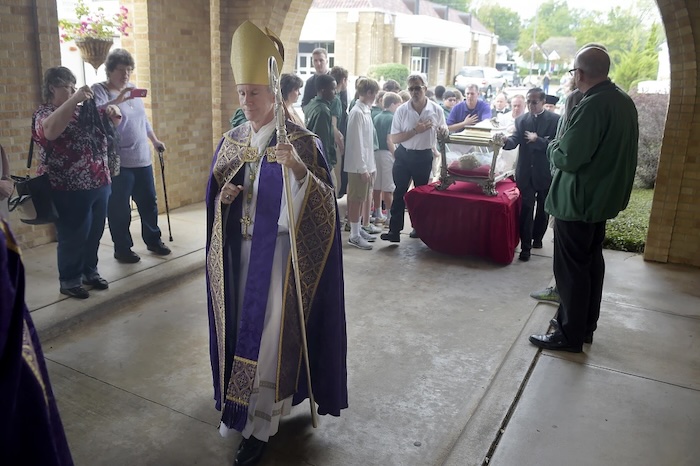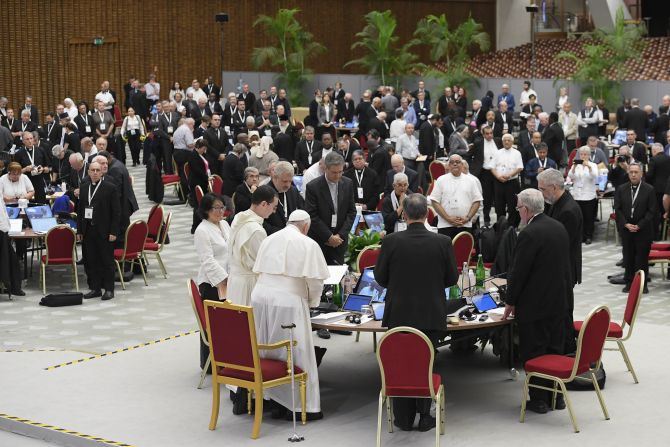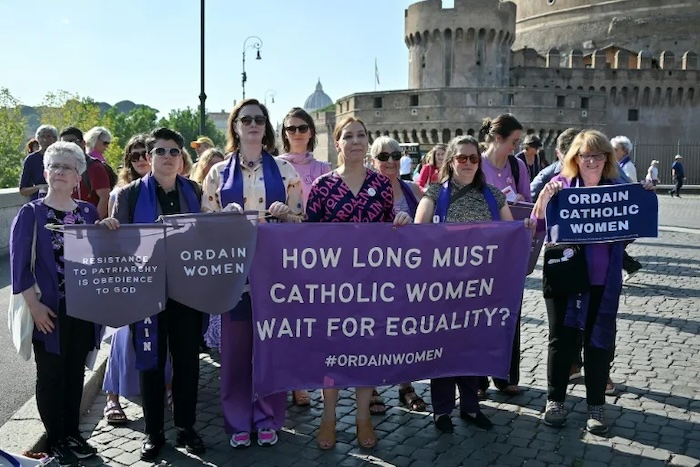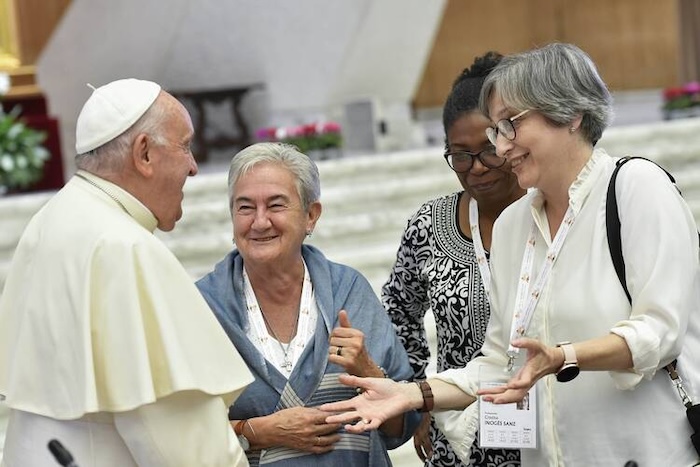
By NICOLE WINFIELD
Pope Francis on Saturday forcibly removed from office the bishop of Tyler, Texas, a conservative active on social media who has been a fierce critic of the pontiff and some of his priorities.
A one-line statement from the Vatican said Francis had “relieved” Bishop Joseph Strickland of the pastoral governance of Tyler and appointed the bishop of Austin as the temporary administrator.
Strickland, 65, has emerged as a critic of Francis, accusing him in a tweet earlier this year of “undermining the deposit of faith.” He has been particularly critical of Francis’ recent meeting on the future of the Catholic Church during which hot-button issues were discussed, including ways to better welcome LGBTQ+ Catholics.
The Vatican earlier this year sent in investigators to look into his governance of the diocese, amid reports he was making doctrinally unorthodox claims.
The Vatican has not released the findings of the investigation, and Strickland had insisted he wouldn’t resign voluntarily. He had said in media interviews that he was given a mandate to serve by the late Pope Benedict XVI and couldn’t abdicate that responsibility, and had complained that he hadn’t been told what the pope’s investigators were looking into.
It is rare for the pope to forcibly remove a bishop from office. Bishops are required to offer to resign when they reach 75. When the Vatican uncovers issues with governance or other problems that require a bishop to leave office before then, the Vatican usually seeks to pressure him to resign for the good of his diocese and the church.
That was the case when another U.S. bishop was forced out earlier this year following a Vatican investigation. Knoxville, Tenn. Bishop Richard Stika resigned voluntarily, albeit under pressure, following allegations he mishandled sex abuse allegations, and his priests complained about his leadership and behavior.
But with Strickland, the Vatican statement made clear he had not offered to resign, and that Francis had instead “relieved” him from his job.
Most recently, Strickland had criticized Francis’ monthlong closed-door debate on making the church more welcoming and responsive to the needs of Catholics today. The meeting debated a host of previously taboo issues, including women in governance roles and welcoming LGBTQ+ Catholics, but in the end, its final document didn’t veer from established doctrine.
Ahead of the meeting, Strickland said it was a “travesty” that such things were even on the table for discussion.
”Regrettably, it may be that some will label as schismatics those who disagree with the changes being proposed,” Strickland wrote in a public letter in August. “Instead, those who would propose changes to that which cannot be changed seek to commandeer Christ’s Church, and they are indeed the true schismatics.”
There was no immediate comment from the diocese, and the U.S. Conference of Catholic Bishops merely posted an English translation of the Vatican statement with data about the size of the diocese.
In a social media post sent a few hours before the Vatican’s noon announcement, Strickland wrote a prayer about Christ being the “way, the truth and the life, yesterday, today and forever.”
Complete Article ↪HERE↩!




